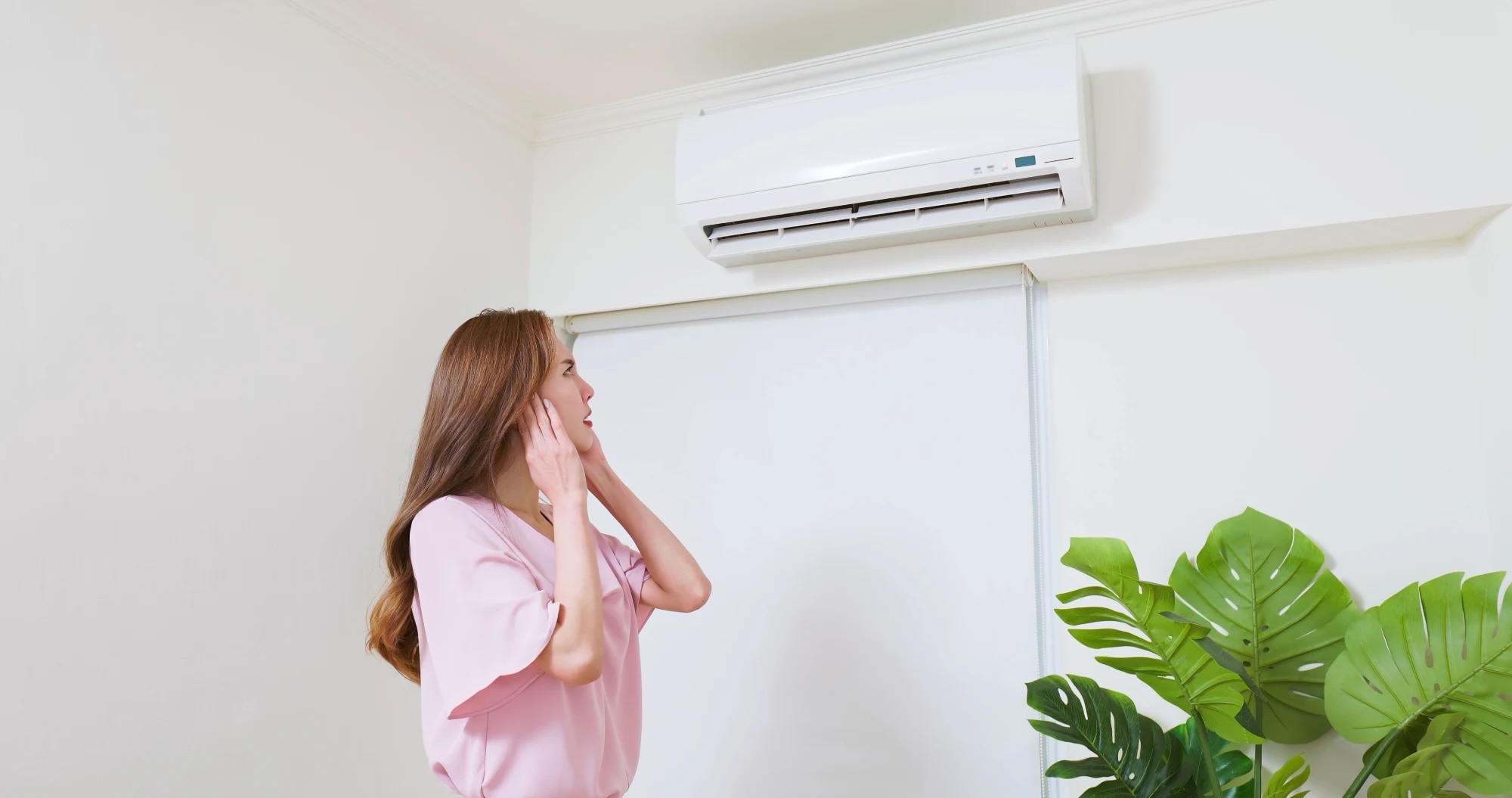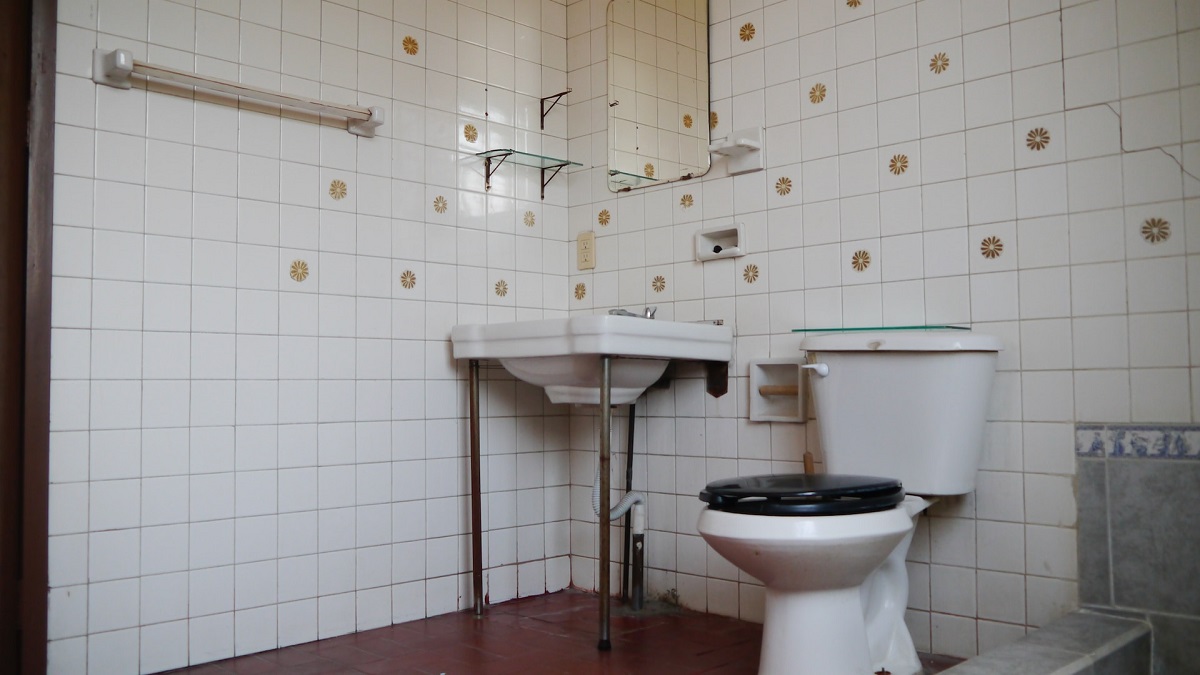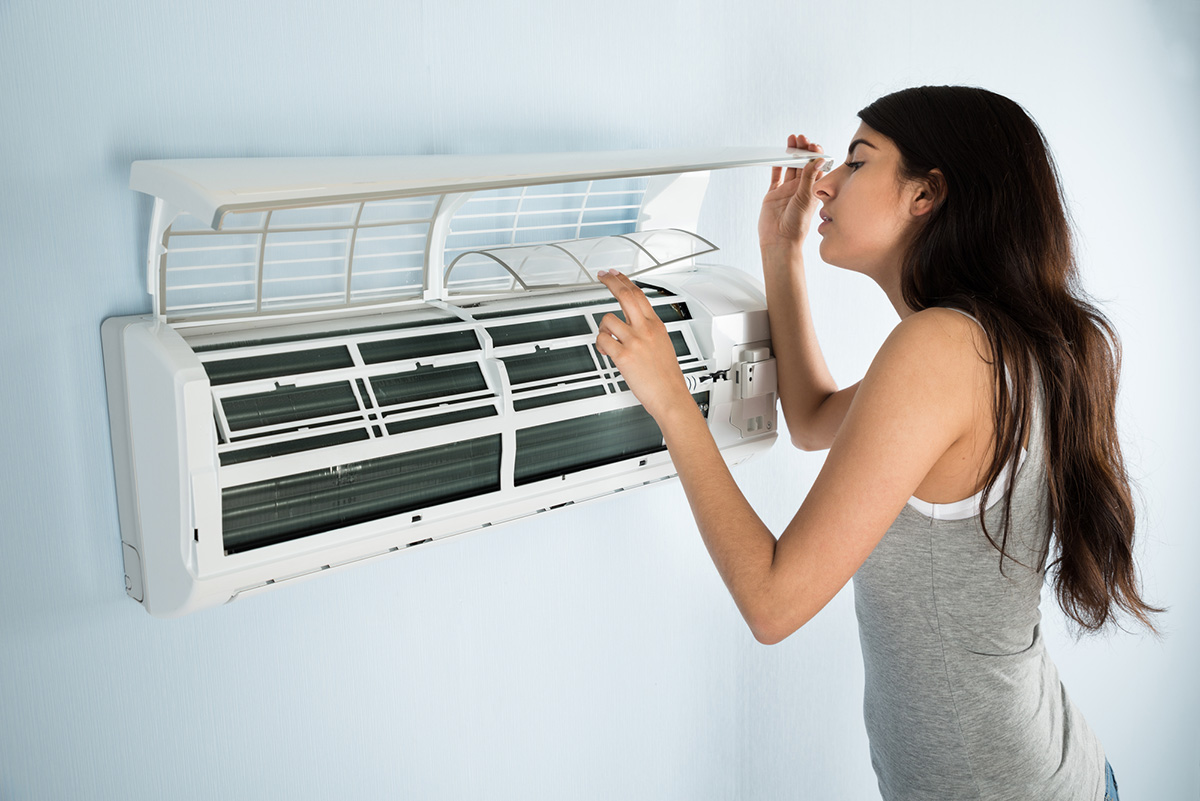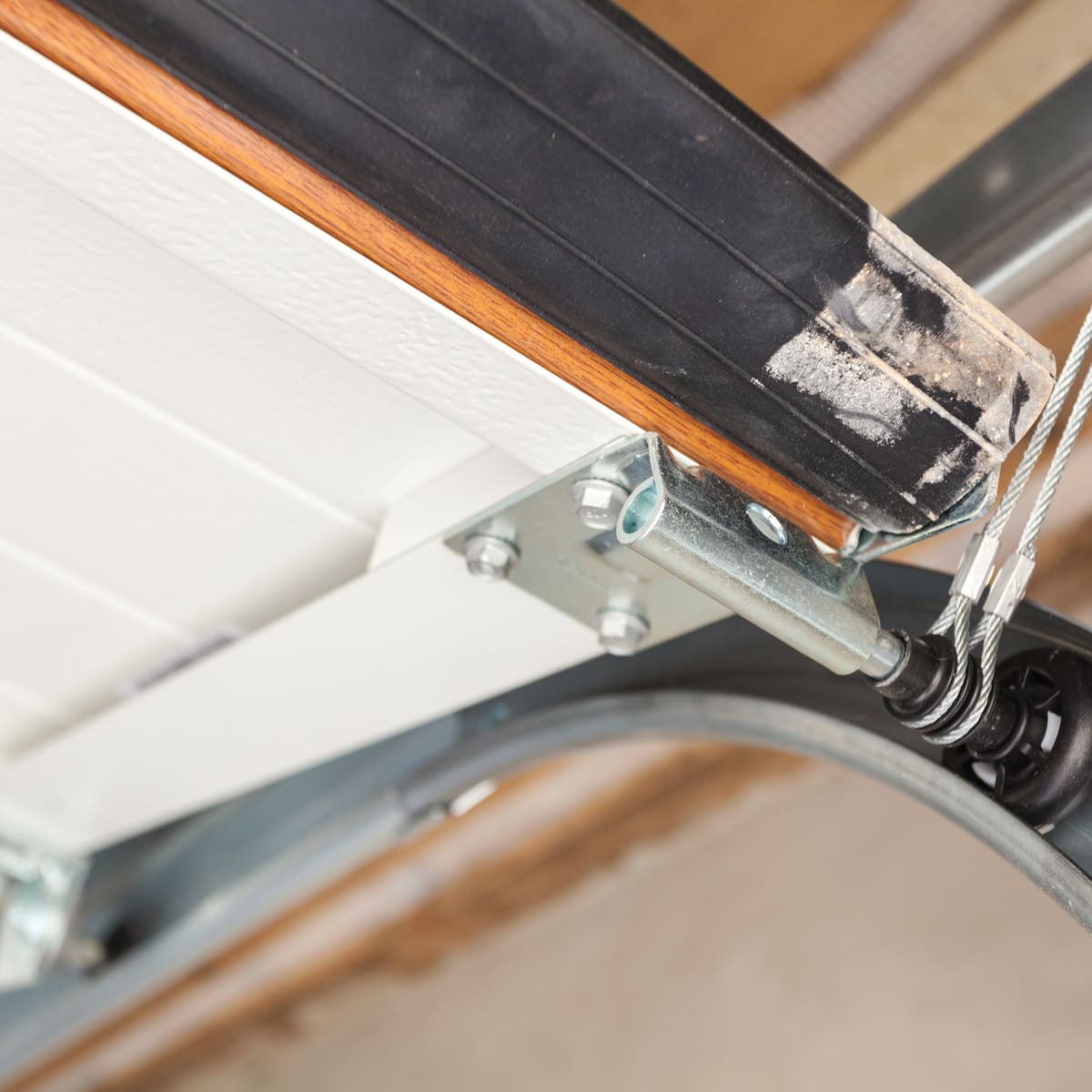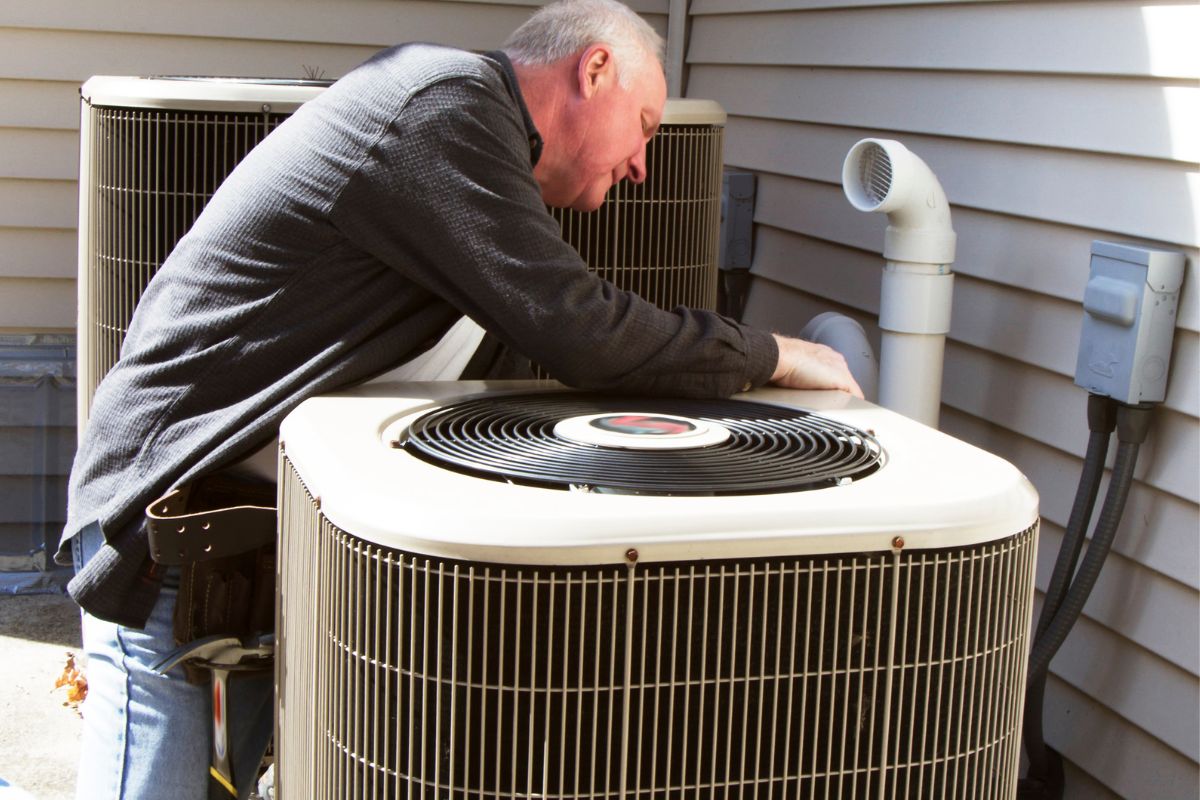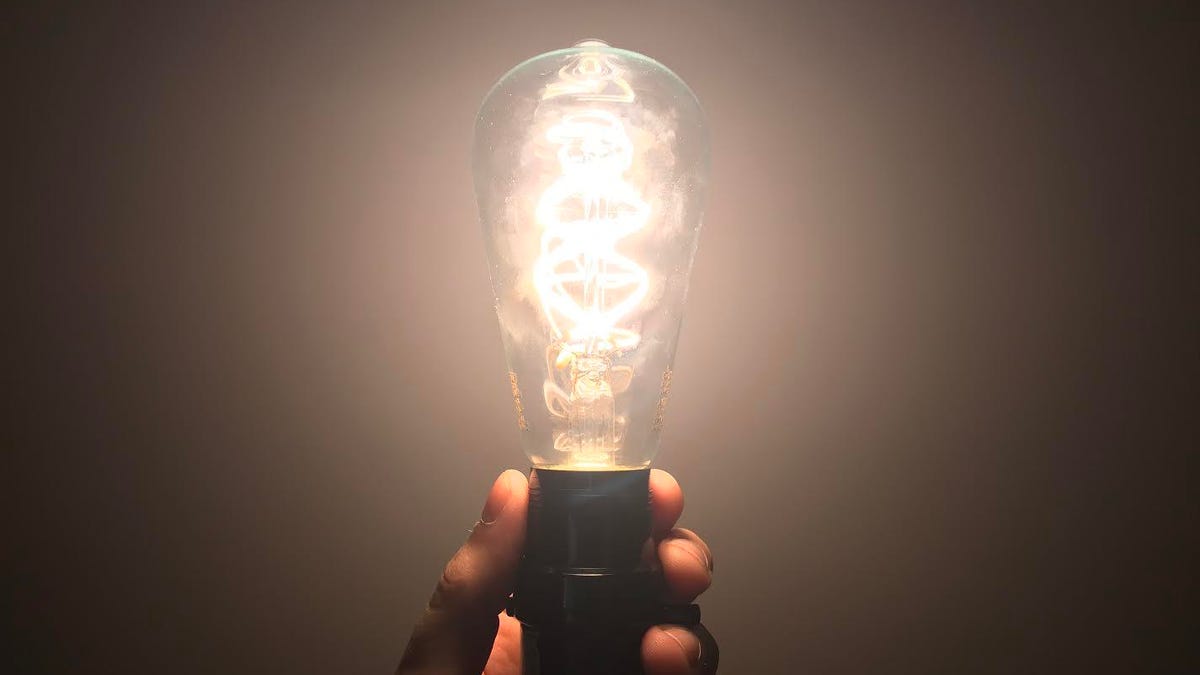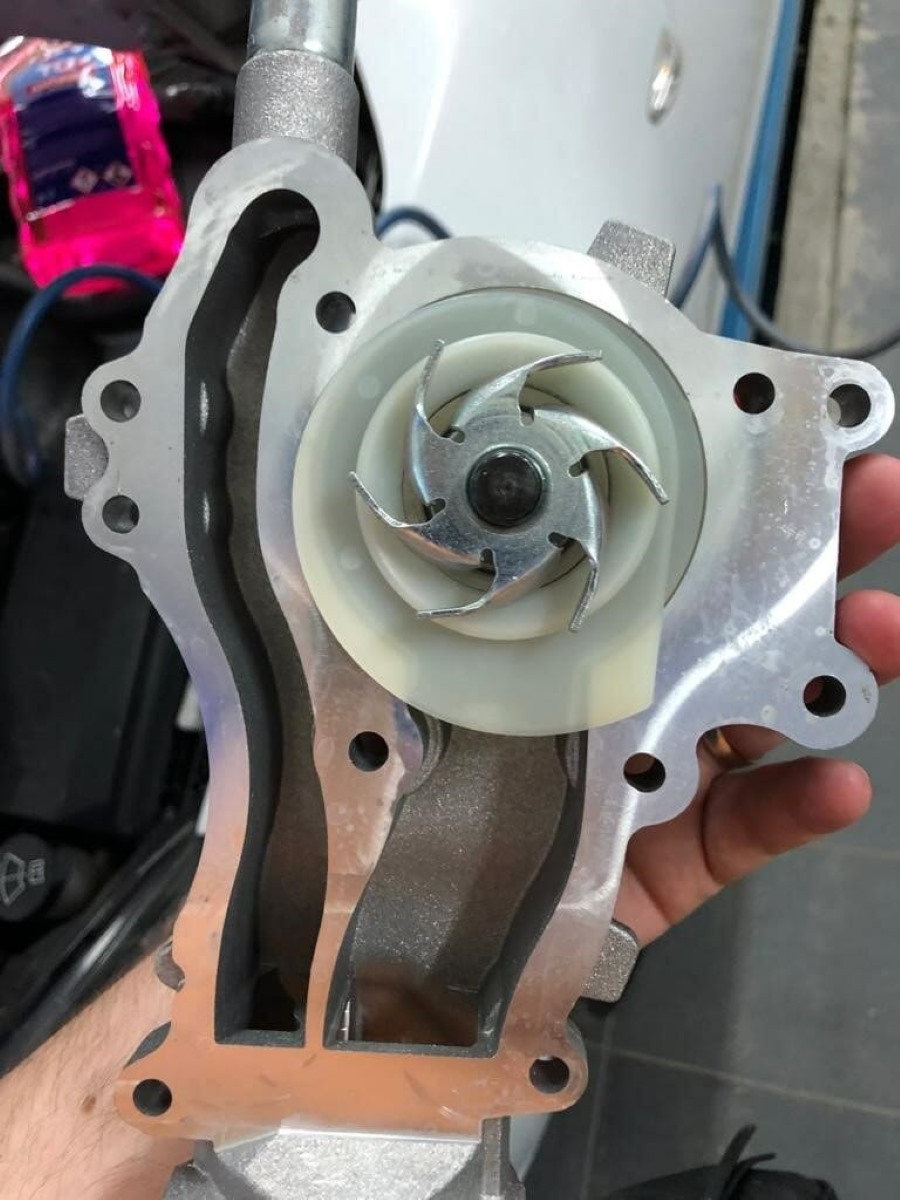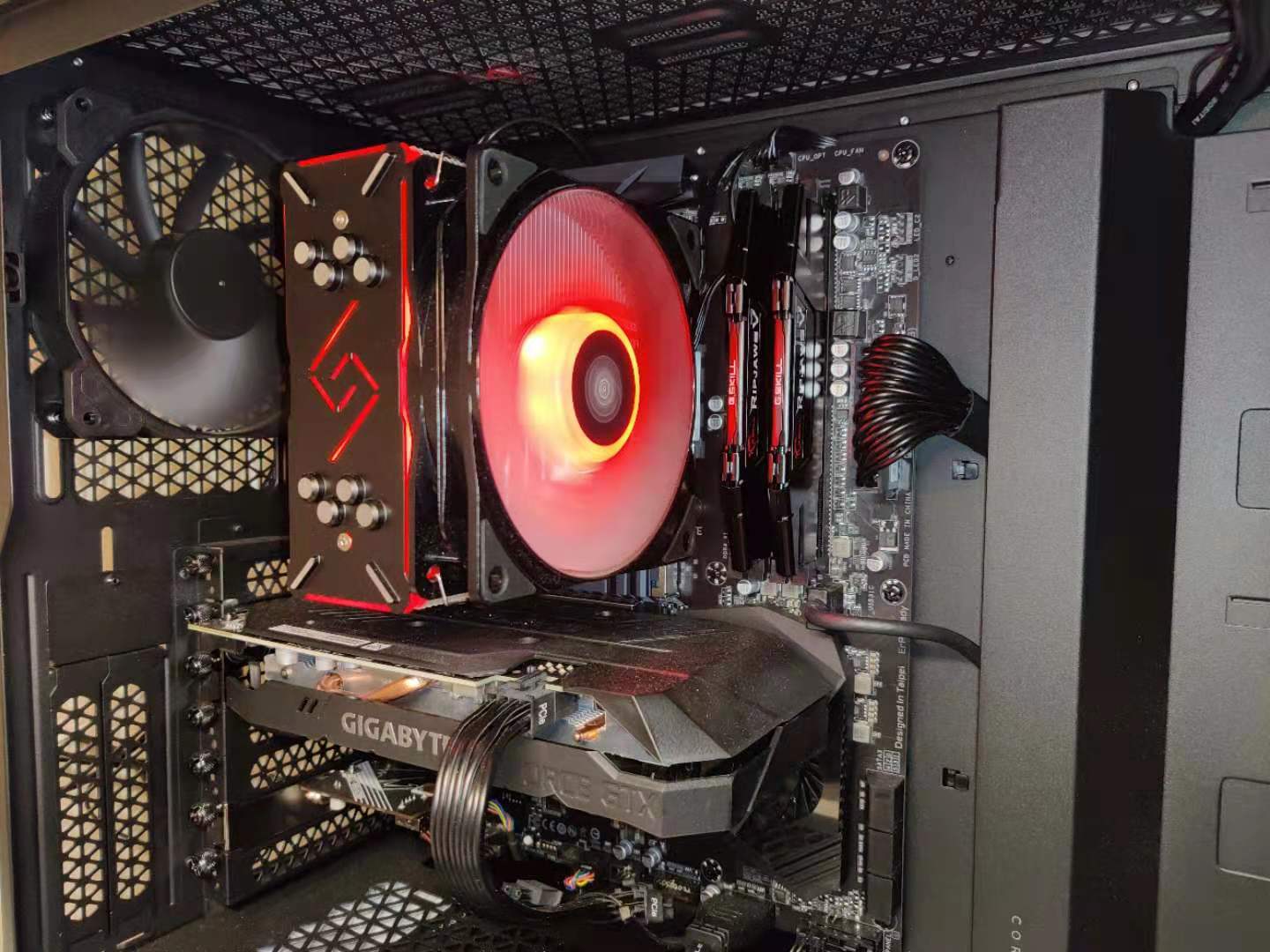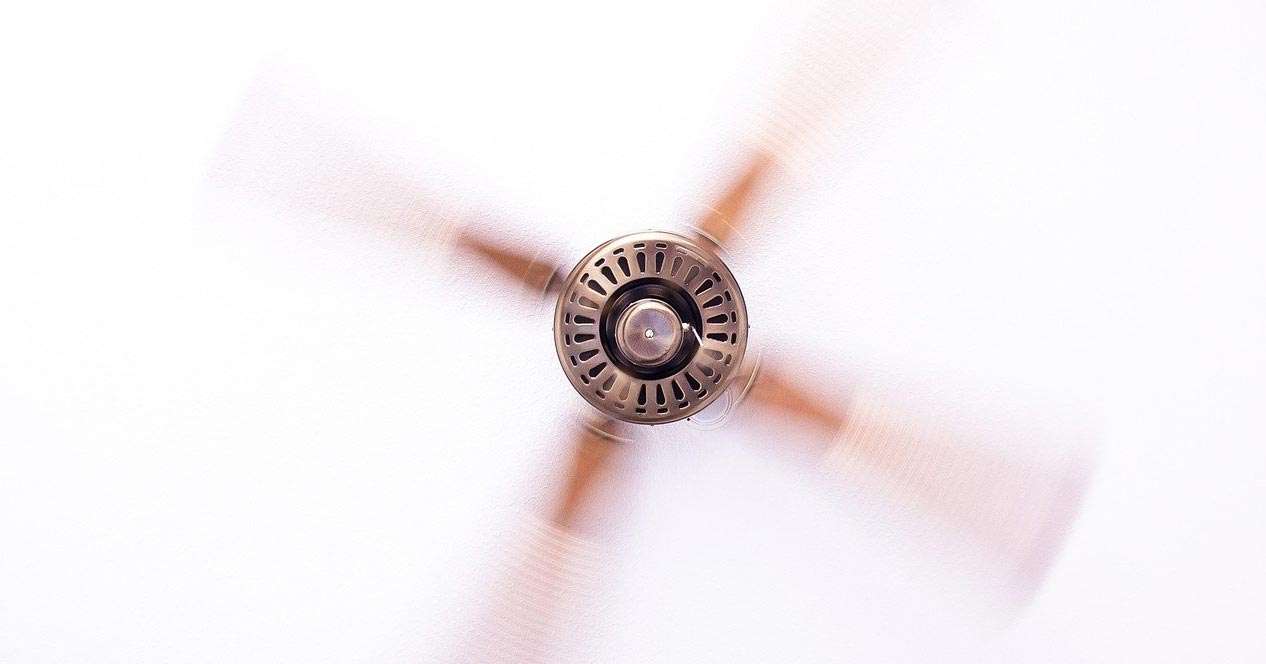Home>Home Maintenance>Why Is My Air Conditioner Making A Loud Buzzing Noise?


Home Maintenance
Why Is My Air Conditioner Making A Loud Buzzing Noise?
Modified: March 7, 2024
Learn why your air conditioner is making a loud buzzing noise with our expert home maintenance tips. Resolve this issue and enjoy a peaceful and comfortable environment.
(Many of the links in this article redirect to a specific reviewed product. Your purchase of these products through affiliate links helps to generate commission for Storables.com, at no extra cost. Learn more)
Introduction
There’s nothing quite as frustrating as relaxing in your home on a hot summer day, only to be interrupted by a loud, buzzing noise emanating from your air conditioner. Not only is it annoying, but it can also be a sign of a potential problem with your cooling system.
A buzzing noise in an air conditioner can have a variety of causes, ranging from minor issues to more serious malfunctions. It’s important to address these problems promptly to prevent further damage and ensure the optimal performance of your air conditioning unit.
In this article, we will explore the possible causes of a loud buzzing noise in an air conditioner and provide you with some effective solutions to fix the problem. Whether you’re a homeowner or a renter, understanding the root cause of the buzzing noise can help you determine whether it’s something you can fix on your own or if you need to call a professional for assistance.
So, let’s dive in and find out what might be causing that annoying buzzing sound in your air conditioner.
Note: Before attempting any repairs, always make sure to turn off the power to your air conditioner to prevent any electrical accidents. If you’re unsure about any aspect of the repair process, it’s best to seek the help of a qualified HVAC technician.
Key Takeaways:
- Keep your air conditioner running smoothly by addressing loose parts, electrical issues, and dirty components. Regular maintenance and professional help can eliminate buzzing noises and ensure a comfortable home.
- Don’t let a buzzing air conditioner ruin your comfort. Clean or replace air filters, inspect for faulty parts, and address installation issues to enjoy a quiet and efficient cooling experience.
Read more: Why Is My AC Making A Buzzing Noise
Possible Causes of a Loud Buzzing Noise in an Air Conditioner
When your air conditioner starts making a loud buzzing noise, it’s important to identify the underlying cause to resolve the issue. Here are some common culprits for the buzzing sound in your air conditioner:
1. Loose or Damaged Parts: Over time, the vibration of the air conditioner’s components can cause screws, bolts, or other parts to come loose. This can lead to a buzzing noise as the loose parts rattle against each other. Additionally, damaged or worn-out parts, such as fan blades or belts, can also generate a buzzing sound when they’re not functioning properly.
2. Electrical Issues: Faulty electrical connections or damaged wiring can cause buzzing noises in the air conditioner. This can occur when the electrical components inside the unit, such as the capacitor or relay, are not functioning correctly. It’s important to address these electrical issues promptly to prevent any safety hazards.
3. Dirty Condenser Coils: The condenser coils in an air conditioner are responsible for releasing heat from the refrigerant. Over time, these coils can become dirty and clogged with debris, such as dust, dirt, and pollen. When the condenser coils are dirty, airflow is restricted, which can result in the buzzing sound.
4. Faulty Fan Motor: The fan motor plays a crucial role in circulating air throughout the air conditioner. If the fan motor is faulty or damaged, it can produce a buzzing noise as it struggles to spin properly. This can be caused by a variety of issues, including worn-out bearings or a malfunctioning motor.
5. Low Refrigerant Levels: The refrigerant is the substance responsible for cooling the air in your air conditioner. If there’s a leak in the system or the refrigerant levels are low, the air conditioner may produce a buzzing sound as it struggles to operate efficiently. Low refrigerant levels can also result in decreased cooling performance.
6. Clogged Air Filters: The air filters in your air conditioner help to trap dust, dirt, and other particles from entering the system. However, when these filters become clogged, it can restrict airflow and put additional strain on the unit, leading to a buzzing noise.
7. Improper Installation: If your air conditioner was not installed correctly, it can cause various issues, including a buzzing noise. Common installation problems include loose connections, inadequate insulation, or improper placement, all of which can contribute to the buzzing sound.
8. External Factors: In some cases, the buzzing noise may not be directly related to the air conditioner itself. External factors, such as nearby electrical interference, vibrating objects, or even insect infestations, can create a buzzing sound that may be mistaken for a problem with the air conditioner.
Now that we have identified the potential causes of the buzzing noise in your air conditioner, let’s move on to the solutions to fix this annoying issue.
Loose or Damaged Parts
One of the most common reasons for a loud buzzing noise in an air conditioner is loose or damaged parts. As the air conditioner operates, the vibration from the compressor, fan, and other components can cause screws, bolts, or other parts to loosen over time. This can result in a rattling sound and a noticeable buzzing noise.
To address this issue, start by inspecting the exterior of the air conditioner. Check for any loose screws or bolts and tighten them using the appropriate tools. If you notice any damaged or worn-out parts, such as fan blades or belts, they may need to be replaced to eliminate the buzzing noise.
For more intricate parts inside the air conditioner, it’s best to consult the manufacturer’s manual or seek the assistance of a professional HVAC technician. They can accurately identify and fix any loose or damaged parts to restore the smooth operation of your air conditioner.
Preventive maintenance is also essential to avoid future issues with loose or damaged parts. Regularly inspect your air conditioner and tighten any screws or bolts that may have become loose over time. Additionally, schedule routine maintenance check-ups with a qualified technician to ensure that all components are in proper working condition.
Remember, if you’re not comfortable or experienced with handling the internal components of an air conditioner, it’s always best to seek professional help. Attempting repairs without the proper knowledge and tools can lead to further damage or personal injury.
By promptly addressing any loose or damaged parts in your air conditioner, you can eliminate the buzzing noise and prolong the life of your cooling system.
Electrical Issues
Electrical issues can often be the culprit behind a loud buzzing noise in an air conditioner. If there are problems with the electrical components inside the unit, such as the capacitor, relay, or wiring, it can result in a buzzing sound during operation.
When it comes to electrical issues, it’s crucial to prioritize safety. Before attempting any repairs, always ensure that you have turned off the power to your air conditioner to avoid any electrical accidents.
Here are a few steps you can take to address electrical issues and eliminate the buzzing noise:
1. Inspect the wiring: Check for any frayed or damaged wires inside the air conditioner. If you notice any issues, it’s best to contact a professional HVAC technician to handle the repairs. They have the necessary expertise to safely replace or repair the damaged wiring.
2. Examine the capacitor: The capacitor is responsible for providing the electrical charge to start the motor and keep it running. If the capacitor is faulty or damaged, it can result in a buzzing noise. A defective capacitor will need to be replaced by an experienced technician.
3. Check the relay: The relay controls the flow of electricity in the air conditioner. If the relay is malfunctioning, it can produce a buzzing noise. In this case, the faulty relay should be professionally replaced to ensure safe and proper operation.
4. Consult a professional: If you suspect any electrical issues with your air conditioner, it’s best to reach out to a qualified HVAC technician. They possess the knowledge and expertise to accurately diagnose and repair electrical problems while prioritizing safety.
To prevent electrical issues in the future, regular maintenance is essential. Schedule annual inspections with a professional technician who can thoroughly inspect the electrical components of your air conditioner and address any potential problems before they escalate.
Remember, working with electrical components can be dangerous, especially if you’re inexperienced. Always prioritize your safety by seeking professional assistance when dealing with electrical issues in your air conditioner.
By addressing electrical issues promptly and ensuring the proper functioning of electrical components, you can eliminate the buzzing noise in your air conditioner and enjoy a comfortable and quiet cooling experience.
Dirty Condenser Coils
Dirty condenser coils can be a leading cause of a loud buzzing noise in an air conditioner. The condenser coils play a crucial role in releasing heat from the refrigerant. Over time, these coils can become clogged with dirt, dust, and debris, obstructing the airflow and causing the unit to work harder. This strain on the system can result in a buzzing sound.
To address this issue and restore optimal performance to your air conditioner, follow these steps:
1. Turn off the power: Always ensure that the power to your air conditioner is turned off before attempting any maintenance or cleaning tasks.
2. Access the condenser unit: Locate the outdoor unit of your air conditioner, which houses the condenser coils. It is usually located on the side or back of the house. Remove any debris, such as leaves or twigs, that may have accumulated around the unit.
3. Clean the condenser coils: Carefully remove the protective grille or cover from the condenser unit. Using a soft brush or a vacuum cleaner with a brush attachment, gently clean the coils to remove any dirt, dust, or debris. Be thorough but gentle to avoid damaging the fragile fins of the coils.
4. Rinse the coils: Once you have removed the bulk of the dirt and debris, use a garden hose to rinse the condenser coils. Start from the top and work your way down, ensuring that the water flows in the opposite direction of the airflow. This will help dislodge any remaining particles.
5. Avoid using harsh chemicals: While there are commercial coil cleaning solutions available, it’s best to avoid using strong chemicals unless recommended by the manufacturer. Harsh chemicals can cause damage to the coils or other components of the unit.
6. Reassemble and test: After cleaning the condenser coils, carefully reassemble the protective grille or cover. Turn on the power to the air conditioner and observe if the buzzing noise persists. If the noise is still present, the issue may be attributed to another cause, and it’s advisable to contact a professional technician for further diagnosis.
Regularly cleaning the condenser coils of your air conditioner is essential to prevent dirt and debris buildup. Aim to clean the coils at least once a year or more frequently if you live in a particularly dusty or polluted area.
By maintaining clean condenser coils, you can improve the efficiency of your air conditioner, reduce strain on the system, and eliminate the annoying buzzing noise.
Faulty Fan Motor
A faulty fan motor is another common culprit behind a loud buzzing noise in an air conditioner. The fan motor is responsible for circulating air throughout the system, aiding in cooling and maintaining proper airflow. If the fan motor is damaged or malfunctioning, it can produce a buzzing sound as it struggles to spin properly.
Here’s what you can do to address a faulty fan motor:
1. Turn off the power: It’s important to ensure that the power to your air conditioner is turned off before attempting any repairs or inspections.
2. Locate the fan motor: Depending on your air conditioner model, the fan motor can be located in the outdoor or indoor unit. Remove any protective covers or grilles to access the fan motor.
3. Inspect the fan motor: Carefully examine the fan motor for any visible signs of damage, such as frayed wires, loose connections, or worn-out bearings. If you notice any issues, it’s best to seek professional assistance to replace or repair the faulty parts.
4. Lubricate the fan motor: In some cases, the buzzing noise may be a result of dry bearings in the fan motor. If this is the case, you can try lubricating the motor with a few drops of oil specifically designed for motor bearings. Follow the manufacturer’s instructions for the appropriate type and amount of lubricant to use.
5. Test the fan motor: After addressing any visible issues and lubricating the motor, turn on the power to the air conditioner and observe if the buzzing noise persists. If the noise persists or worsens, it’s best to seek professional help to diagnose and resolve the problem.
6. Regular maintenance: To prevent future issues with the fan motor, it’s important to perform regular maintenance on your air conditioner. This includes cleaning the fan blades, checking for obstructions, and ensuring that the motor is properly lubricated. Regular maintenance will help prolong the life of your fan motor and prevent potential buzzing noises.
Remember, handling electrical components can be hazardous, especially if you’re not experienced. If you’re unsure or uncomfortable with inspecting or repairing the fan motor, it’s always best to consult a professional HVAC technician who has the expertise and tools to handle the task safely.
By addressing any issues with a faulty fan motor, you can eliminate the buzzing noise and ensure proper airflow in your air conditioner, leading to efficient cooling and a quieter operation.
Check if the outdoor unit has debris or loose parts causing the noise. Clean the unit and tighten any loose components to reduce the buzzing sound.
Low Refrigerant Levels
Low refrigerant levels can be a significant cause of a loud buzzing noise in an air conditioner. Refrigerant is the substance responsible for absorbing heat from the air, cooling it, and then releasing the heat outside. When the refrigerant levels are low, the air conditioner may struggle to operate efficiently, leading to a buzzing sound.
Here’s what you can do to address low refrigerant levels:
1. Observe other signs: Low refrigerant levels are often accompanied by other symptoms. Keep an eye out for reduced cooling performance, longer cooling cycles, or ice forming on the evaporator coil. If you notice these signs in addition to the buzzing noise, it’s likely that low refrigerant levels are the issue.
2. Call a professional: Checking and replenishing refrigerant levels requires specialized knowledge and equipment. It’s best to contact a qualified HVAC technician to handle this task. They will be able to properly measure the refrigerant levels and confirm if low refrigerant is indeed the cause of the buzzing noise.
3. Leak detection and repair: If the technician determines that the refrigerant levels are low, they will need to locate and repair any leaks in the system before adding more refrigerant. Simply adding refrigerant without fixing the leaks is a temporary solution and will lead to the same issue recurring.
4. Recharge refrigerant: Once the leaks are repaired, the technician will recharge the refrigerant to the appropriate levels. This ensures that your air conditioner can operate efficiently and eliminate the buzzing noise caused by low refrigerant.
5. Regular maintenance: To prevent future issues with low refrigerant levels, it’s important to schedule regular maintenance for your air conditioner. During these maintenance visits, the technician will check for any potential leaks, clean the coils, and ensure that the refrigerant levels are optimal. By staying on top of maintenance, you can catch any refrigerant issues early on and prevent them from causing buzzing noises or more significant problems.
Remember, handling refrigerant requires specialized knowledge and certification due to its potential harm to the environment as well as safety concerns. It’s essential to leave this task to a professional HVAC technician who has the expertise and equipment to handle refrigerant properly.
By addressing low refrigerant levels in your air conditioner, you can restore its efficiency, eliminate the buzzing noise, and enjoy a comfortably cool home. Regular maintenance will help maintain proper refrigerant levels and prevent future issues from occurring.
Clogged Air Filters
A clogged air filter can contribute to a loud buzzing noise in an air conditioner. The air filter plays a crucial role in trapping dust, dirt, and other particles from entering the system. Over time, these particles can accumulate and restrict airflow, causing strain on the unit and resulting in a buzzing sound.
Here’s how you can address clogged air filters:
1. Locate the air filter: The air filter is typically located in the return air duct or inside the air handler unit. Consult your air conditioner’s manual if you’re unsure about its location.
2. Turn off the power: Before attempting to remove or clean the air filter, make sure to turn off the power to your air conditioner.
3. Inspect the air filter: Take a look at the air filter and check for any visible signs of dirt, dust, or debris. If the filter appears dirty or clogged, it’s time for a cleaning or replacement.
4. Clean or replace the air filter: If your filter is reusable, follow the manufacturer’s instructions to clean it. This usually involves rinsing it under running water or using a mild detergent. Let the filter dry completely before reinstalling it. If your filter is disposable, simply replace it with a new one. It’s recommended to clean or replace your air filter every one to three months, depending on usage and the manufacturer’s recommendations.
5. Regular maintenance: To prevent future issues with clogged air filters, establish a regular maintenance routine. Check your air filter regularly and clean or replace it as needed. This will help maintain proper airflow, improve the efficiency of your air conditioner, and prevent the buzzing noise from occurring.
In addition to addressing clogged air filters, it’s also important to ensure that there are no obstructions around the air vents or return air grilles. Keep furniture, curtains, or other objects away from these areas to maximize airflow.
By keeping your air filters clean and maintaining proper airflow, you can minimize strain on your air conditioner, prevent buzzing noises, and improve the overall air quality in your home. Regular maintenance is key to maintaining optimal performance and extending the lifespan of your cooling system.
Improper Installation
Improper installation of an air conditioner can be a major contributor to a loud buzzing noise. When the unit is not installed correctly, it can lead to various issues, including loose connections, inadequate insulation, or improper placement, all of which can contribute to the buzzing sound.
Here’s what you can do to address improper installation:
1. Inspect the installation: Start by visually inspecting the air conditioner installation, both indoors and outdoors. Look for any visible signs of loose components, such as loose screws, bolts, or disconnected ductwork. Ensure that the unit is securely mounted and level.
2. Check the electrical connections: Examine the electrical connections and ensure they are properly tightened. Loose or improper electrical connections can result in buzzing noises. If you notice any issues with the electrical connections, it’s best to contact a professional HVAC technician to handle the repairs.
3. Insulate exposed ductwork: If you notice exposed ductwork that is not properly insulated, it could be a source of the buzzing noise. Inadequate insulation can cause vibrations and increased noise levels. Consult a professional technician to properly insulate the ductwork and reduce the buzzing noise.
4. Verify proper placement: Improper placement of the air conditioner can also contribute to the buzzing noise. The unit should be installed on a solid and level surface to minimize vibrations. Ensure that there is proper clearance around the unit for adequate airflow and that it is not positioned too close to any obstructions.
5. Consult a professional: If you suspect that the buzzing noise is a result of improper installation, it’s best to seek the help of a qualified HVAC technician. They have the knowledge and expertise to identify and resolve any installation-related issues to eliminate the noise.
Proper installation of an air conditioner is crucial for optimal performance and minimal noise levels. If your unit was not installed correctly, it’s important to address the issues promptly to prevent further damage and discomfort.
Remember, attempting to fix installation-related issues without proper knowledge and training can lead to further complications or void the warranty on your air conditioner. Always rely on a professional technician to ensure that the unit is installed and functioning correctly.
By addressing any improper installation issues, you can eliminate the buzzing noise and enjoy the full benefits of a well-installed air conditioning system.
Read more: Why Is My Freezer Making A Loud Noise
External Factors
Sometimes, the buzzing noise in an air conditioner may not be directly related to the unit itself but rather caused by external factors. It’s important to consider these factors as they can mimic a problem with the air conditioner and create unnecessary worry.
Here are some common external factors that can contribute to a buzzing noise:
1. Nearby electrical interference: Electrical devices or wiring in close proximity to the air conditioner can produce electromagnetic interference, resulting in a buzzing sound. This interference can be caused by appliances, power lines, or even faulty electrical circuits. If you suspect this to be the case, try moving any nearby electrical devices away from the air conditioner or consult an electrician to resolve any electrical issues.
2. Vibrating objects: Objects in or around the vicinity of the air conditioner can vibrate due to the unit’s operation, leading to a buzzing noise. These objects can include loose panels, loose light fixtures, or nearby furniture. Check for any loose objects and tighten them to eliminate the buzzing noise.
3. Insect infestations: Insects, such as bees, wasps, or hornets, may build their nests near or inside the air conditioner, causing a buzzing sound. If you suspect an insect infestation, it’s best to seek help from a pest control professional. They can safely remove the nest and resolve the buzzing noise issue.
4. Environmental factors: Sometimes, environmental factors like wind or rain can create vibrations that result in a buzzing noise. While there’s little you can do to control these external factors, it’s important to differentiate between these natural causes and potential issues with the air conditioner itself.
If you suspect that external factors are causing the buzzing noise, take the following steps:
1. Inspect the surrounding area: Examine the area around the air conditioner for any potential sources of interference or vibrating objects. If you identify any, take action to reduce or eliminate them.
2. Monitor the noise: Pay attention to when the buzzing noise occurs. If it only happens during specific times or weather conditions, it’s more likely that it is caused by an external factor.
3. Consult a professional: If you’re unsure about the source of the noise or if it persists despite addressing external factors, it’s best to consult a professional HVAC technician. They can thoroughly inspect the unit and determine if there are any internal issues contributing to the buzzing noise.
By considering external factors and eliminating their potential influence, you can ensure that the buzzing noise in your air conditioner is truly resolved. It’s important to differentiate between internal and external causes to avoid unnecessary repairs or replacements.
How to Fix a Loud Buzzing Noise in an Air Conditioner
Dealing with a loud buzzing noise in your air conditioner can be frustrating, but the good news is that many causes of the noise can be addressed and resolved. Here are some steps you can take to fix the problem:
1. Identify the source: Start by identifying the source of the buzzing noise. This can be done by carefully listening to your air conditioner and determining if the noise is coming from the outdoor unit, indoor unit, or both. Understanding the source will help you narrow down potential causes and solutions.
2. Inspect for loose or damaged parts: Check for any loose screws, bolts, or damaged components in your air conditioner. Tighten any loose parts and consider replacing any damaged components to eliminate the buzzing noise. If you are unsure about handling internal components, it’s best to consult a professional technician.
3. Address electrical issues: Faulty electrical connections or damaged wiring can cause buzzing noises. Inspect the wiring and connections in your air conditioner and ensure they are secure and in good condition. If you notice any issues, it’s best to contact an HVAC technician to handle electrical repairs.
4. Clean the condenser coils: Dirty condenser coils can restrict airflow and lead to buzzing noises. Remove any debris from the outdoor unit and clean the condenser coils with a soft brush or a vacuum cleaner with a brush attachment. Rinse the coils gently with a hose to remove remaining dirt or debris. Remember to turn off the power before cleaning.
5. Check the fan motor: A faulty or malfunctioning fan motor can create a buzzing noise. Inspect the fan motor for any visible signs of damage or wear. Lubricate the motor if necessary or contact a professional technician for repairs or replacements.
6. Ensure proper refrigerant levels: Low refrigerant levels can strain the air conditioner and result in buzzing noises. If you suspect low refrigerant levels, contact a professional technician who can detect and repair any leaks, then recharge the refrigerant to the appropriate levels.
7. Clean or replace air filters: Clogged air filters can restrict airflow and cause the air conditioner to work harder, leading to buzzing noises. Clean or replace air filters regularly to ensure proper airflow and prevent debris buildup.
8. Verify proper installation: Improper installation can contribute to buzzing noises. Inspect the installation for loose connections, inadequate insulation, or improper placement. Consult a professional technician if you suspect installation issues.
Remember, it’s crucial to prioritize safety and turn off the power to your air conditioner before attempting any repairs or inspections. If you’re unsure about any aspect of the repair process or if the buzzing noise persists after attempting these solutions, it’s best to contact a qualified HVAC technician. They have the knowledge and expertise to diagnose and fix the problem effectively.
By following these steps and addressing the specific cause of the buzzing noise in your air conditioner, you can restore the smooth operation of your unit and enjoy a quiet and comfortable cooling experience.
Conclusion
Dealing with a loud buzzing noise in your air conditioner can be frustrating, but with the right approach, it can be resolved. By identifying the underlying cause of the noise and taking appropriate steps to fix it, you can restore the optimal performance of your air conditioner and enjoy a quieter and more efficient cooling experience.
Throughout this article, we have explored various possible causes of a loud buzzing noise in an air conditioner, including loose or damaged parts, electrical issues, dirty condenser coils, faulty fan motors, low refrigerant levels, clogged air filters, improper installation, and external factors. Each of these factors requires specific actions to address the issue.
From inspecting and tightening loose parts to cleaning condenser coils, replacing air filters, and addressing electrical problems, it’s important to approach the solutions with caution and prioritize safety. If you are unsure about any aspect of the repair process or if the problem persists after attempting the solutions, it’s always best to contact a professional HVAC technician who can provide expert assistance.
Regular maintenance of your air conditioner is crucial in preventing future issues and ensuring its long-term performance. Schedule routine check-ups with a professional technician to inspect and maintain your unit, addressing any potential problems before they worsen.
In conclusion, a loud buzzing noise in your air conditioner can be irritating and disruptive, but it doesn’t have to persist. By following the steps provided in this article and addressing the specific causes of the buzzing noise, you can restore the comfort and tranquility of your home.
Remember, each air conditioner may have its own unique characteristics and requirements, so it’s important to consult the manufacturer’s manual and follow their guidelines for maintenance and repair. By taking proper care of your air conditioner and promptly addressing any issues, you can prolong its lifespan and ensure its optimal performance for years to come.
Frequently Asked Questions about Why Is My Air Conditioner Making A Loud Buzzing Noise?
Was this page helpful?
At Storables.com, we guarantee accurate and reliable information. Our content, validated by Expert Board Contributors, is crafted following stringent Editorial Policies. We're committed to providing you with well-researched, expert-backed insights for all your informational needs.

